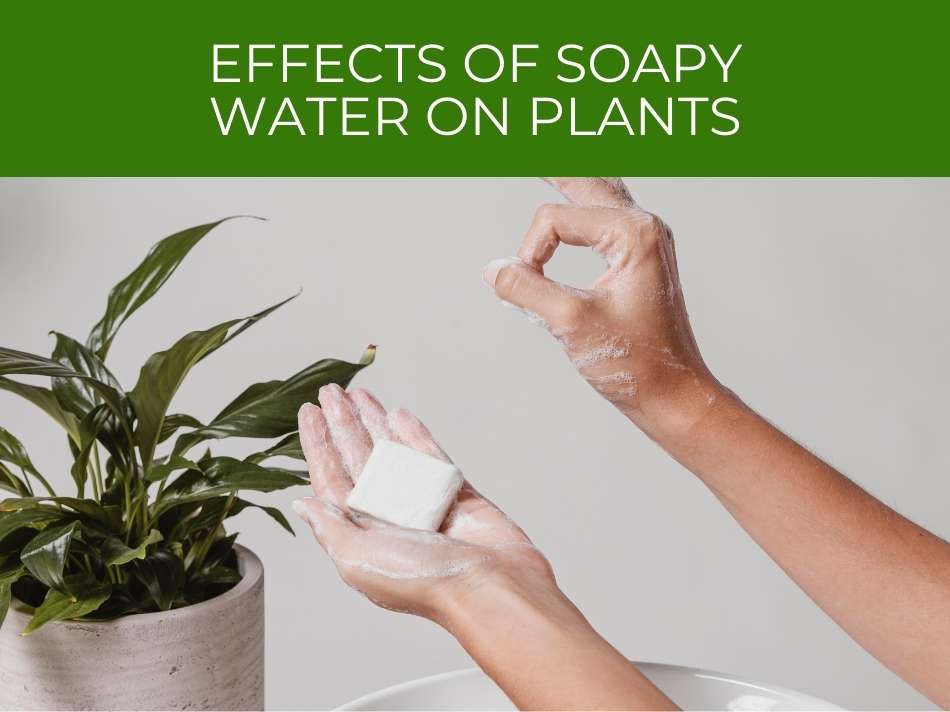For the environmentally conscious, watering your garden with waste soapy water might seem like a good idea. But the type of soap that you use, and the way in which you water might actually cause harm to your plants. Soapy water that is too concentrated, is allowed to accumulate in the soil, or contains harsh chemicals can damage or even kill plants.
Soapy water can harm plants if it is too concentrated, more than 2-3%, or sprayed directly onto leaves in the sun. Watering too regularly can cause soap to build up in the soil & make it water-repellent. Some soaps contain harsh chemicals that are toxic to plants & even humans.
Read our quick guide to understand if soapy water is bad for plants.
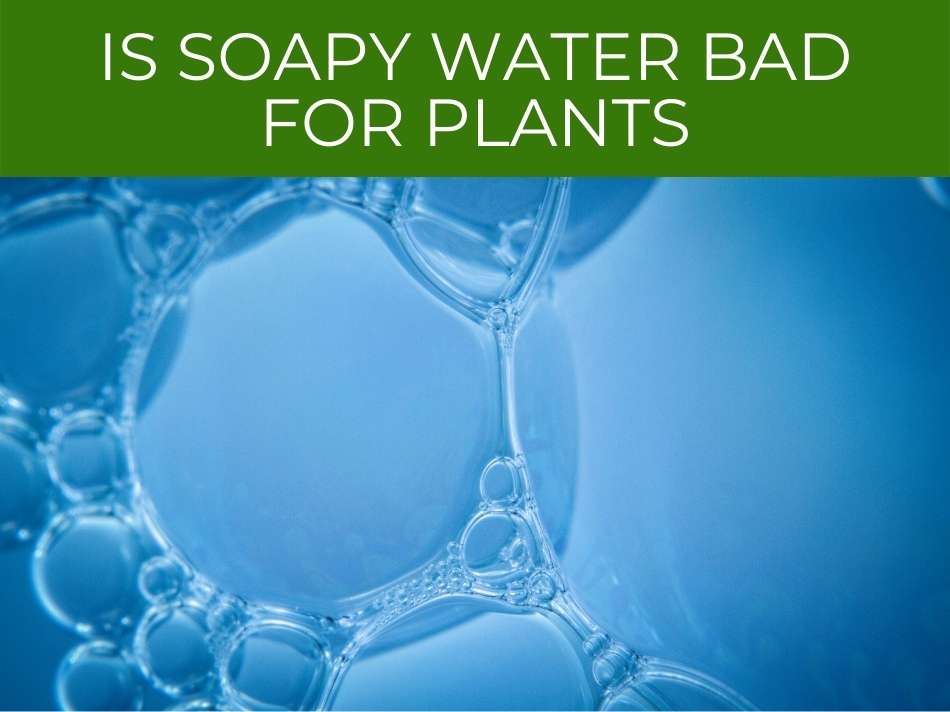
Is soapy water bad for plants
Soapy water can be bad for plants if it is too concentrated, and can burn leaves if it is applied on a sunny day.
Soap can also build up in soil if it is applied too regularly, and can be a particular problem for potted plants.
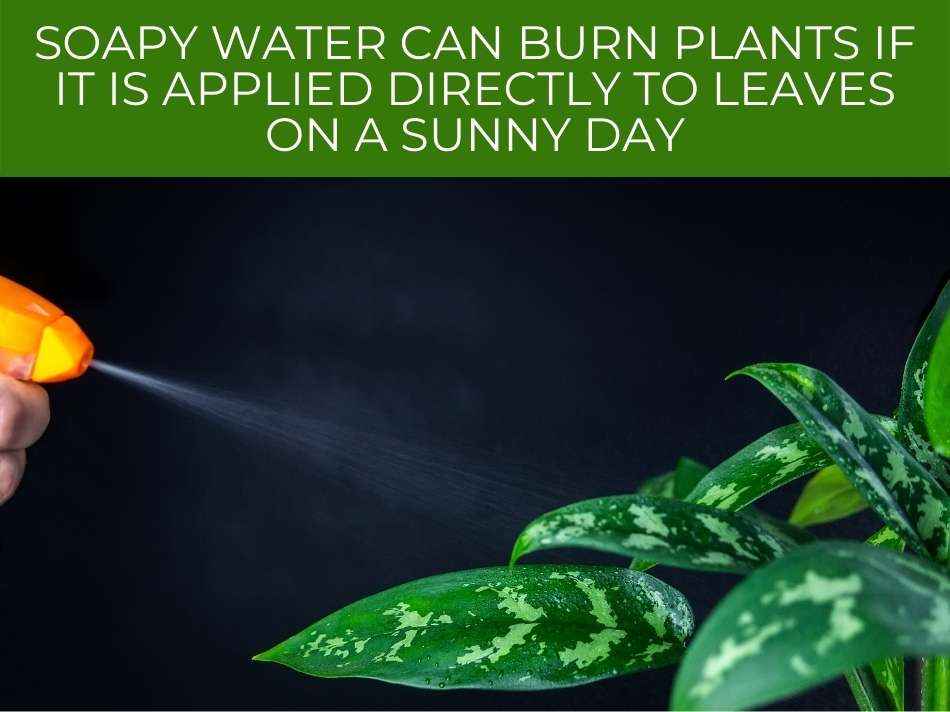
Soapy water can burn plants if it is applied directly to leaves on a sunny day. Some types of soap contain harsh chemicals such as chlorine or boron, which are toxic to plants. Soapy water is bad for plants if it is too concentrated, or is allowed to build up in soil.
A build-up of soap causes the soil to become water-repellant, and plants cannot access water in the soil through their roots.
Certain harsh chemicals, like chlorine or boron are toxic to plants.
Chlorine can cause damage to leaves, and cause new growth to be bleached, which makes it vulnerable to sun damage.
You can reduce the amount of chlorine in water by leaving it to stand overnight.
The chlorine dissolved in the water will evaporate.
Boron is found in detergents like borax, and will build up in the soil, causing harm to plants.
The build-up of boron is also harmful to humans.
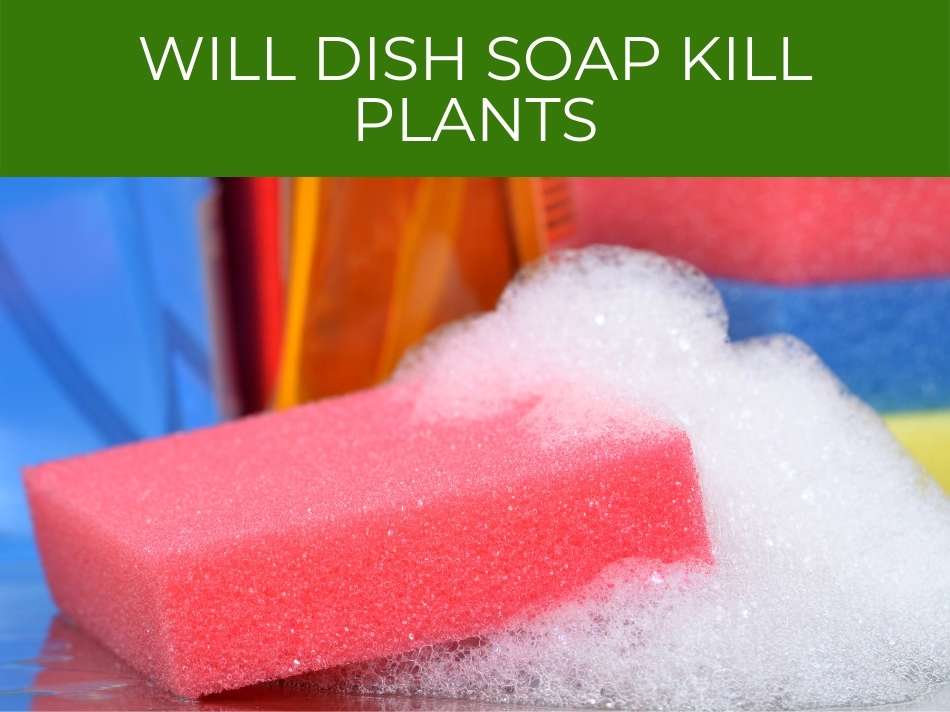
Will dish soap kill plants
Sopas are detergents, which means they have a chemical structure with a hydrophobic (water repelling) part, and a hydrophilic (water attracting) part.
Detergents clean by trapping grease in the hydrophobic part, and washing it away with water thanks to the hydrophilic part.
Concentrated soapy water can kill plants by breaking down the waxy coating on leaves.
This causes plants to lose too much water through the leaves and they become dehydrated.
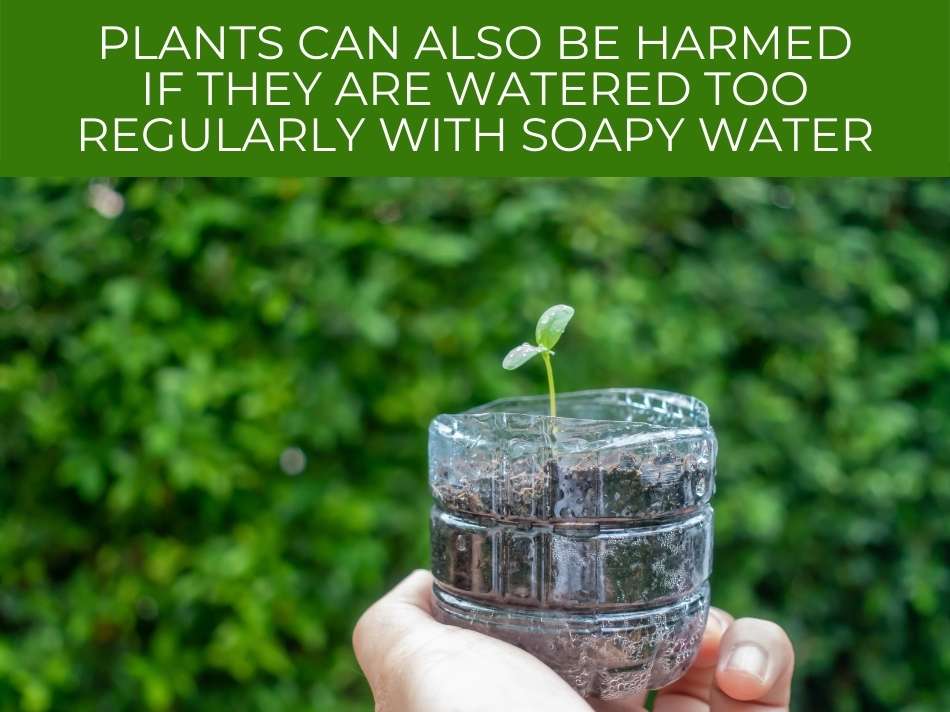
Dish soap can harm or kill plants in concentrations greater than 5-10%. If applied directly, soap can break down the waxy coating of leaves. Plants can also be harmed if they are watered too regularly with soapy water, as it can accumulate in the soil.
If soapy water is used for long periods, it can also persist in the soil, making it water-repellant and preventing plants from absorbing water.
Most soap is pH 8-10, which is alkaline, and can change the pH of the soil, which some plants cannot tolerate.
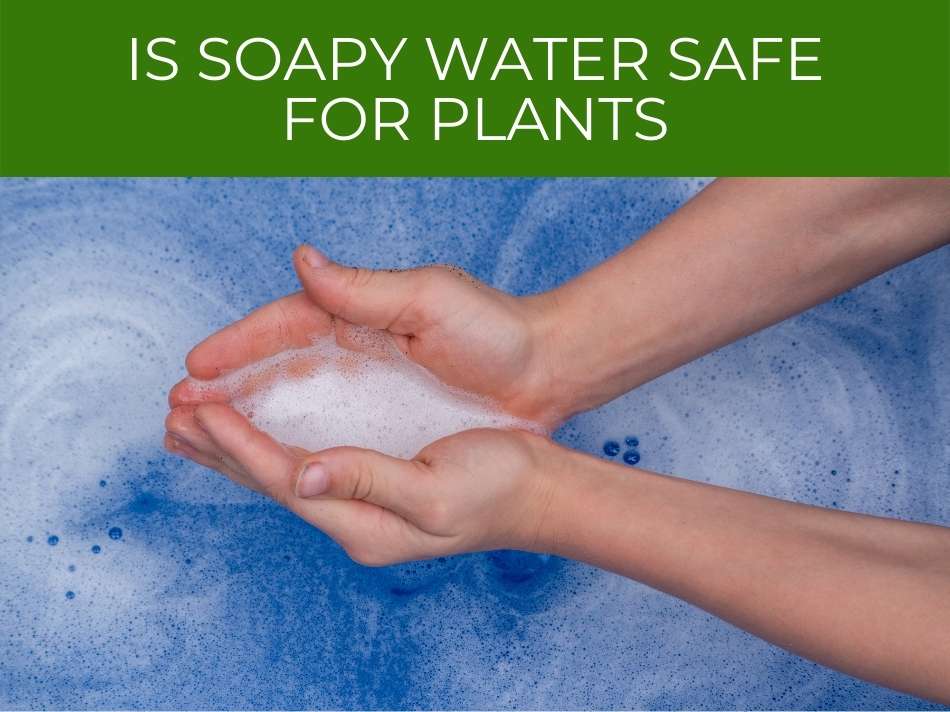
Is soapy water safe for plants
For soapy water to be safe for plants, it needs to be very dilute at around 2-3 percent.
Soapy water can be used to save on fresh water, or to kill small garden pests such as aphids, spider mites and white flies.
Read this article on using soapy water to kill spider mites.
Soapy water should not be used on edible plants, as the chemicals in soaps may cause harm if they are ingested by humans.
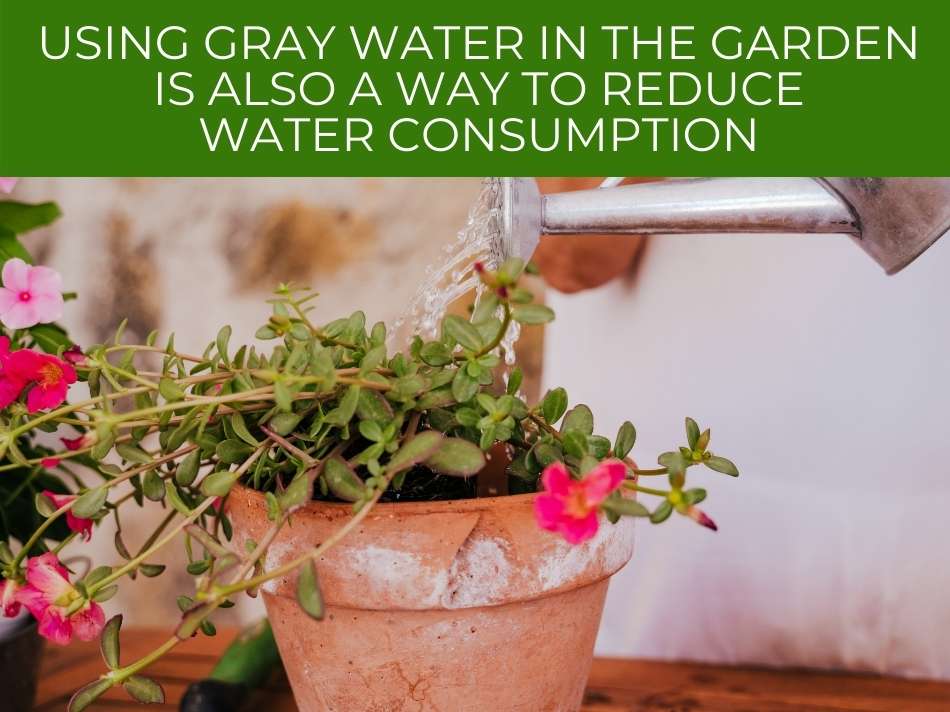
As long as soapy water is diluted, at around 2-3%, it is safe to use on plants. Dilute soapy water can also be used to kill small, soft-bodied garden pests such as aphids, spider mites and white flies. Using gray water in the garden is also a way to reduce water consumption.
Gray water contains organic material such as food waste and dead skin cells, which can cause bacteria to grow.
For this reason, gray water should not be stored and needs to be used straight away.
Gray water systems with synthetic, or natural filters such as reed beds, can help remove soap from water.
Gray water from the laundry should not be used if your detergent contains borax, as it can be toxic to humans if it begins to accumulate in the soil.
See our guide to using dish soap to control spider mites.
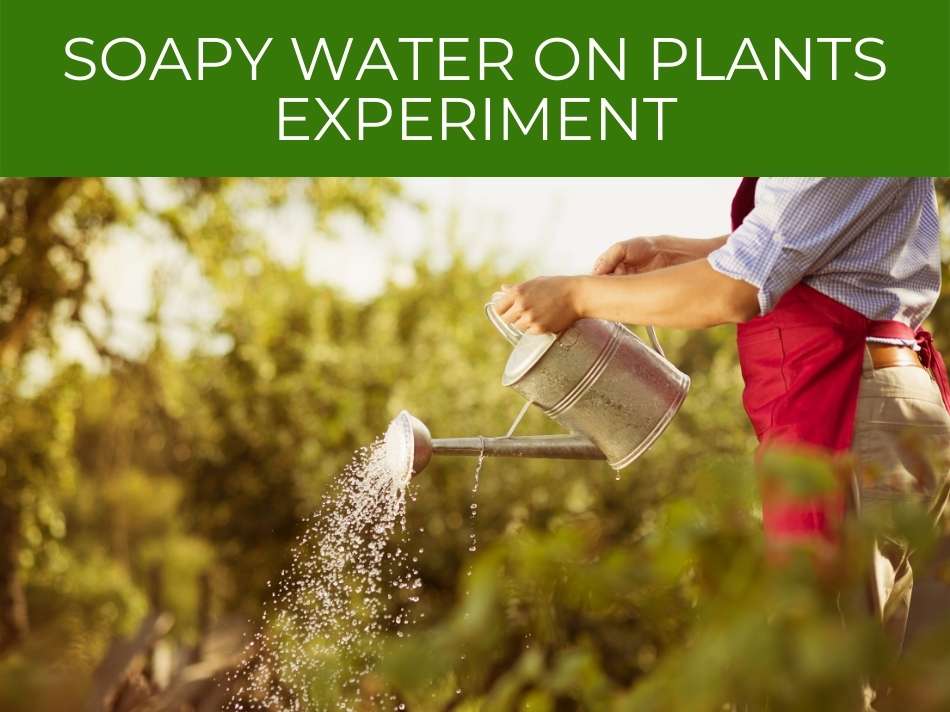
Soapy water on plants experiment
The effects of soapy water on plants can be set up as a simple science experiment for kids.
Set up a number of seeds in pots, and water each one with the same amount each day.
Make one pot a ‘control’ with only fresh water.
Vary the concentration of soapy water in each of the other pots, or vary the types of soaps.
A popular science experiment for kids is to see what the effects of gray water are on plants. Plants are watered with fresh water & different concentrations of soapy water, & plant growth & turgidity are observed. Themes include how water can be recycled & how chemicals end up in the environment.
Measure the growth of each plant, and record other observations such as the turgidity – how well the plant stands up.
For this experiment, use a quick growing plant such as beans.
For another science experiment idea see how to grow beans indoors.
The experiment can prompt thinking about how gray water could be recycled, and how the chemicals that we use in our home affect the natural environment.
You could even test soaps that are labeled as ‘green’ to see if they cause harm to plants.
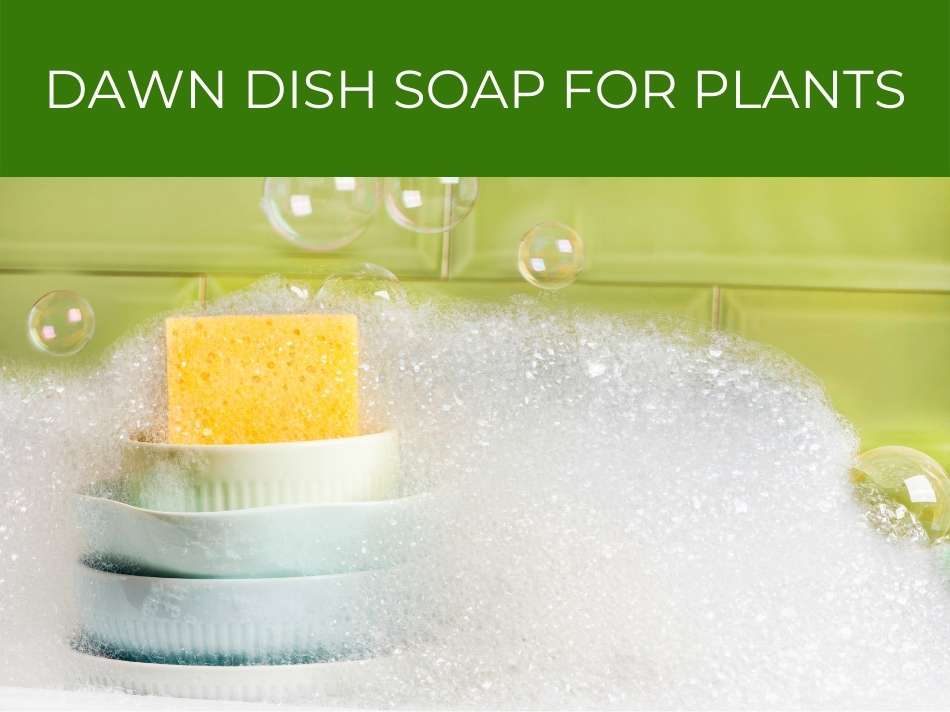
Dawn dish soap for plants
Dawn dish soap is a brand that is commonly used for heavy duty cleaning and degreasing.
Dawn dish soap contains a number of harsh chemicals, including methylisothiazolinone, and is likely to contain 1,4-dioxane as a contaminant of the sodium lauryl sulfate and sodium laureth sulfate production process.
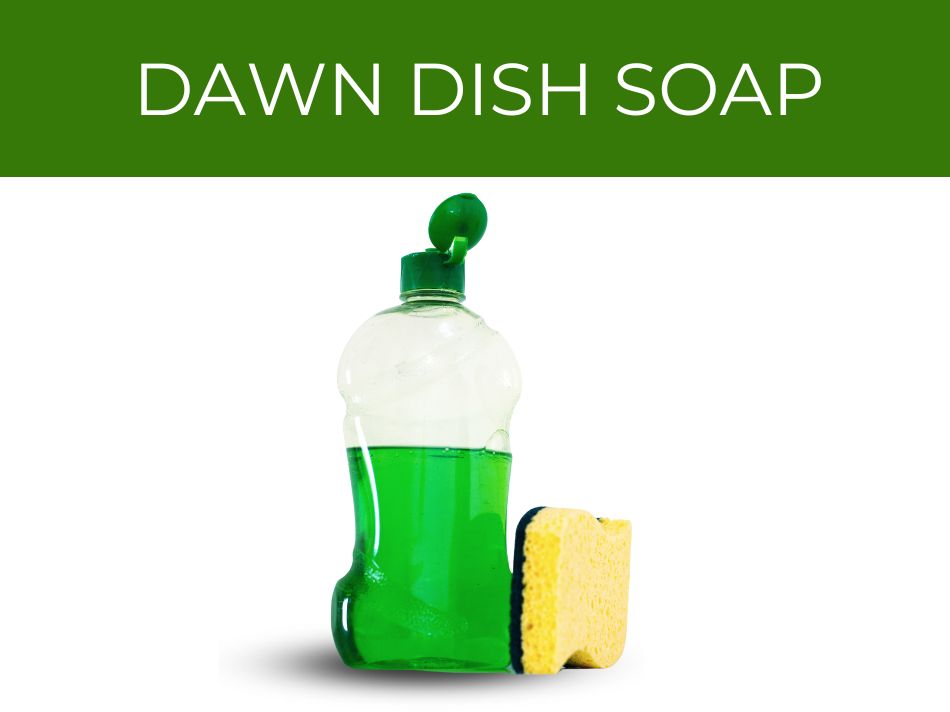
Dawn dish soap is a concentrated degreaser commonly used for regular dishwashing & more heavy-duty cleaning. It contains methylisothiazolinone, which is toxic to aquatic organisms, & 1, 4-dioxane which is a suspected carcinogen. Heavy duty soaps like Dawn should not be used on plants.
Methylisothiazolinone is toxic to aquatic organisms, so soaps containing this ingredient should never be washed out into the soil.
1,4-dioxane is a suspected human carcinogen, so it should not be used in your garden where it could accumulate in the soil.
If you want to try using gray water on plants, switch to soap with fewer chemicals.
Look for those with plant-based surfactants, and those that do not contain 1,4-dioxane, phlathate, petrochemical, glycol, phosphates or caustics.
Find out if peroxide kills spider mites.
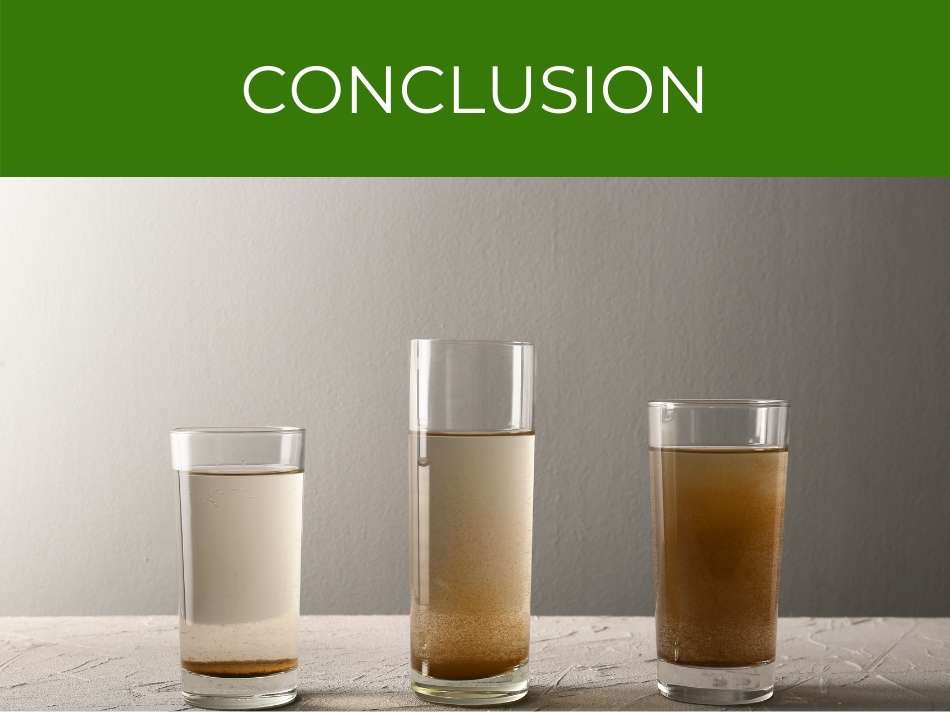
Conclusion
Soapy water, or recycled gray water can be used on plants, but care must be taken to avoid causing them harm.
Soapy water needs to be diluted, and not applied too regularly to the same soil to avoid accumulation.
If you use soaps that contain harsh chemicals, you should avoid reusing the waste water and consider switching to less harmful soaps.

